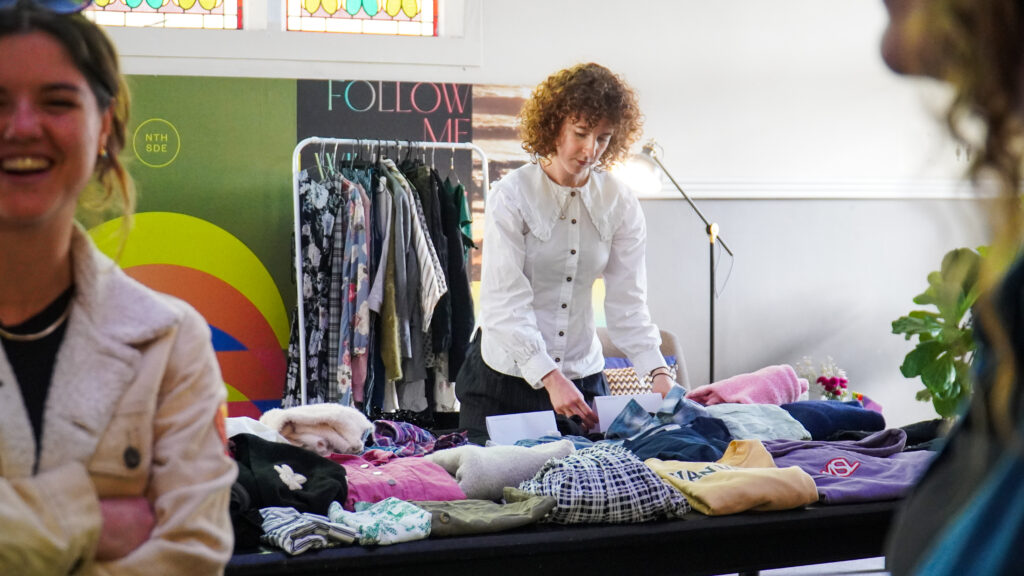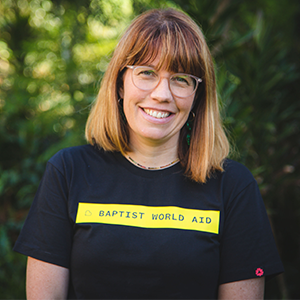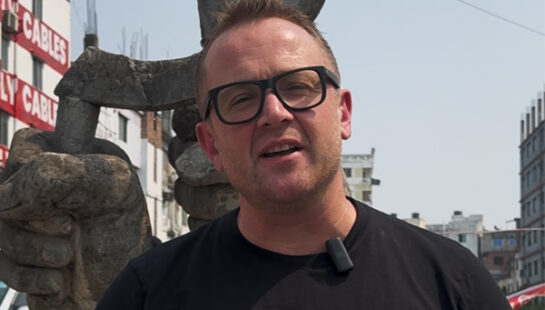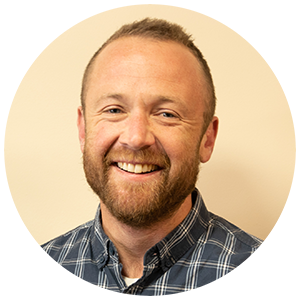It’s easy to feel overwhelmed by the numbers. Australians are buying too many clothes (around 56 items a year), and we’re throwing too many of them away, with 200,000 tonnes ending up in landfill each year, and one in four Australians throwing a garment out after a single wear.
Our most recent Ethical Fashion Report is as rigorous a deep dive into the global fashion industry as ever. Reading it, two key things stand out—we remain, as human beings, both the problem and the solution.
Our report highlights the need for companies and governments to play their part in addressing issues in the supply chain and implementing policies that protect workers and the planet. But we can easily come back to a place of overwhelm, asking ‘What can we do?’
Equipping Young People
The young people at Carey Baptist College, Harrisdale in Western Australia had the opportunity to explore this question recently. Year 11 and 12 took part in a Leadership Summit, where the theme was, ‘Everyday Leaders—Global Change’.
Led by Ed Devine (pictured above), Baptist World Aid Church Partnership Manager, students learned about the injustices in the global fashion industry, ethical purchasing, and how our individual choices can influence an entire industry.
Katherine Lockwood, Head of the Belief and Values Department at Carey Baptist College, Harrisdale, said the aim was to show students that ‘even when the issues in the world feel overwhelming and even existential, there are things they can do that make a difference.’
‘We wanted students to think about how their purchasing power can be a driver for change.’
Even when the issues in the world feel overwhelming and even existential, there are things they [young people] can do that make a difference.
Better Clothing Choices
For others, creating a positive impact with fashion is a fun social affair. In October, 104 people around Australia ran a Baptist World Aid Swaptober event, which encouraged us to ‘swap instead of shop’ and host a clothes swap.
Our Ethical Fashion team, in partnership with Northside Baptist, kicked-off the month with a clothes swap in the church. ‘Hosting a clothes swap feels like a great way to beat consumerism at its own game!’ said Gina Snodgrass (pictured below), Baptist World Aid Advocacy Specialist. ‘Everyone gets to pick up some new-to-you items while passing on old clothes with plenty of life left in them. And we’re putting the brakes on the cycle of overproduction, overconsumption and waste.’

According to attendee Victoria Barfield, the event fostered a great sense of community: ‘I spent a lovely morning chatting and hanging out with like-minded people, while finding some great new items and feeling good about knowing clothes I’ve loved were getting a new life.’ Alexander Smith, another attendee, said, ‘it was a good wake up call to the impact of the fashion industry, and it felt great swapping my clothes rather than sending them to landfill!’
How Can We Reflect Jesus?
At the Leadership Summit, students at Carey Baptist College also learned about the impact of consumption on people and the planet in an interactive and powerful way. Students took part in a simulation game, role-playing the life of a garment worker in Bangladesh. As the simulation devolved—with some students resorting to corruption, and others giving up altogether—it led to interesting conversations about how, when the system is stacked against people, it can lead to unjust cycles of powerlessness that feel insurmountable.
When the system is stacked against people, it can lead to unjust cycles of powerlessness that feel insurmountable.
‘We live in a world driven by materialism,’ Ed said. ‘It’s great to see young people asking, “How can we live differently, reflect Jesus, and make choices that contribute to a better world?”’
While Carey Baptist College includes students of many faiths, and no faith, days like these show that faith in Jesus impacts every choice we make.
This article first appeared in the Better World Magazine—December 2024 Edition.



 Mike Bartlett
Mike Bartlett

 Baptist World Aid
Baptist World Aid